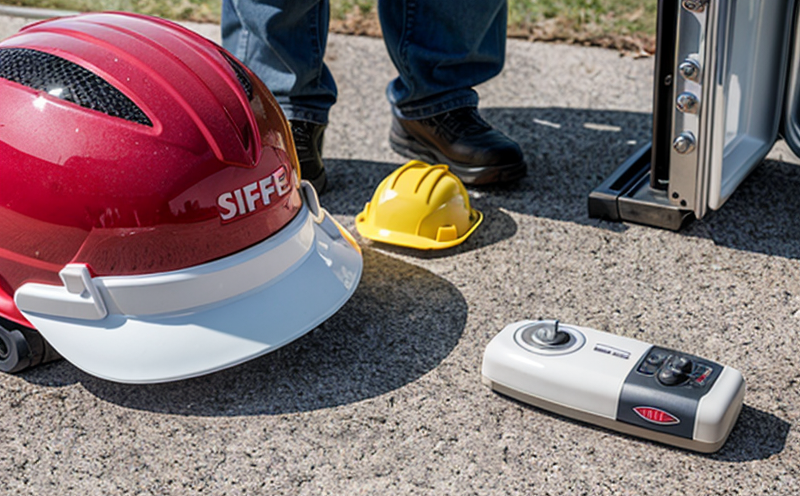ISO 18828 Immersion Suit Thermal Protection Testing
The ISO 18828 standard provides a comprehensive framework to ensure that immersion suits are capable of maintaining thermal protection for the wearer in cold water. This test is crucial for life-saving appliances and safety equipment, particularly in marine environments where maritime personnel may be exposed to hypothermia risks.
Our laboratory specializes in conducting this rigorous testing according to ISO 18828, ensuring that all equipment meets stringent quality standards set forth by international regulations. By simulating real-world conditions, we verify the thermal performance of these critical safety devices under various temperatures and durations. This process involves controlled exposure of the suit material to cold water at specified temperature ranges followed by a series of assessments to measure insulation properties.
The testing procedure begins with precise sample preparation, including conditioning materials according to ISO standards prior to immersion tests. During actual testing, multiple parameters are monitored such as heat transfer rates through different layers of fabric used in manufacturing life jackets and other protective gear. Additionally, we evaluate buoyancy characteristics which play a significant role in maintaining the wearer's safety during prolonged exposure.
Our team uses advanced instrumentation to collect accurate data points throughout each trial run, allowing for detailed analysis post-testing. Reporting includes graphical representations of thermal conductivity measurements alongside compliance verification against relevant international standards like ISO 18828. This ensures transparency and traceability for manufacturers seeking certification or approval.
- Preparation: Material conditioning per ISO guidelines
- Environmental Setup: Cold water tanks maintained at specified temperatures
- Data Collection: Continuous monitoring of thermal properties during immersion
- Post-Test Analysis: Comparison against accepted performance thresholds
Why Choose This Test
Selecting ISO 18828 Immersion Suit Thermal Protection Testing is essential for several reasons. Firstly, it guarantees that your products meet the highest safety standards recognized globally. Compliance with international norms enhances trust among consumers and regulatory bodies alike, thereby protecting brand reputation.
Secondly, our comprehensive testing ensures consistent quality across all batches produced by manufacturers. This consistency reduces variability in product performance, leading to more reliable outcomes when used under actual operational conditions. Furthermore, it helps prevent potential failures that could compromise user safety during emergencies at sea.
Thirdly, choosing this service allows you to stay ahead of regulatory changes and evolving industry trends. As maritime regulations continue to tighten around global standards for lifesaving equipment, having a partner who understands these requirements can provide significant competitive advantage.
Quality and Reliability Assurance
- Data Accuracy: Utilizing state-of-the-art sensors to capture precise measurements during each trial.
- Material Consistency: Ensuring uniformity in how samples are prepared before testing begins.
- Reproducibility: Maintaining consistent environmental conditions throughout multiple rounds of experimentation.
Environmental and Sustainability Contributions
Incorporating ISO 18828 Immersion Suit Thermal Protection Testing into your quality assurance process not only improves product safety but also contributes positively towards environmental sustainability efforts. By ensuring robust thermal insulation capabilities, these suits help extend the time individuals can remain safe in cold water environments without risking hypothermia.
This extends rescue operations and enhances overall maritime safety, potentially reducing incidents that could lead to unnecessary human loss or prolonged exposure times for responders. Moreover, adhering to such stringent testing procedures demonstrates a commitment to responsible manufacturing practices aligned with broader sustainability goals within the industry.





